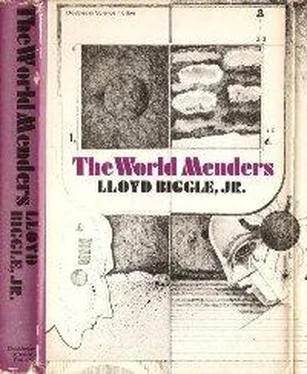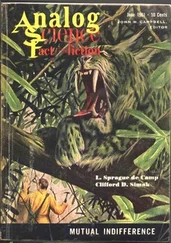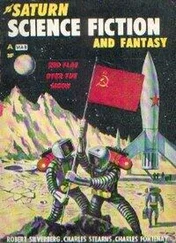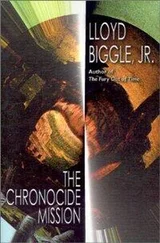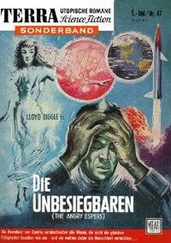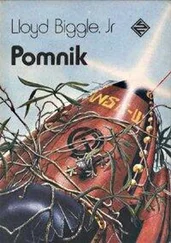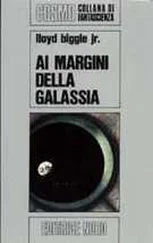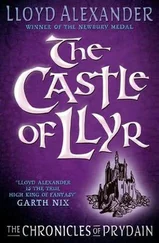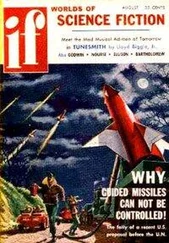Lloyd Biggle Jr. - The World Menders
Здесь есть возможность читать онлайн «Lloyd Biggle Jr. - The World Menders» весь текст электронной книги совершенно бесплатно (целиком полную версию без сокращений). В некоторых случаях можно слушать аудио, скачать через торрент в формате fb2 и присутствует краткое содержание. Год выпуска: 1971, Издательство: Doubleday, Жанр: Фантастика и фэнтези, на английском языке. Описание произведения, (предисловие) а так же отзывы посетителей доступны на портале библиотеки ЛибКат.
- Название:The World Menders
- Автор:
- Издательство:Doubleday
- Жанр:
- Год:1971
- ISBN:нет данных
- Рейтинг книги:5 / 5. Голосов: 1
-
Избранное:Добавить в избранное
- Отзывы:
-
Ваша оценка:
- 100
- 1
- 2
- 3
- 4
- 5
The World Menders: краткое содержание, описание и аннотация
Предлагаем к чтению аннотацию, описание, краткое содержание или предисловие (зависит от того, что написал сам автор книги «The World Menders»). Если вы не нашли необходимую информацию о книге — напишите в комментариях, мы постараемся отыскать её.
The World Menders — читать онлайн бесплатно полную книгу (весь текст) целиком
Ниже представлен текст книги, разбитый по страницам. Система сохранения места последней прочитанной страницы, позволяет с удобством читать онлайн бесплатно книгу «The World Menders», без необходимости каждый раз заново искать на чём Вы остановились. Поставьте закладку, и сможете в любой момент перейти на страницу, на которой закончили чтение.
Интервал:
Закладка:
He urged the gril to a faster pace and began to teach himself how to ride. As day come on he began to meet and overtake a scattering of traffic: military wagons, the rare citizen rasc bound for the garrison town at the head of the valley, a troop of cavalry sweeping along in single file. No one paid any attention to him, and he quickly decided that he was safer on the highway than in the lanes. Strangers were the rule on the highway, but in the back country a strange durrl’s assistant might be required to explain his presence.
He had to leave the highway and search for a durrl’s headquarters when he needed grain, but he made excellent progress. He was far south of Bran’s valley and approaching the lilorr— and beginning to wonder what he would do when he got there—when he found the ol.
He had made a night raid on a durrl’s headquarters and was returning to his gril when he stepped heavily on a quarm log someone had carelessly left in the lane—except that quarm logs did not moan when stepped on. With fumbling fingers he pieced together the story of what had happened: the ol was on a special errand, alone, bringing a heavy basket of seed tubers from the durrl’s headquarters for the morrow’s planting. He had collapsed under the load. A durrl’s assistant would find him at dawn by running a wagon over him, but by then he would be dead.
Farrari returned to his gril and rode slowly along the lane, searching for the flickering light and pungent odor that marked a nightfire. He found one and rode up to the circle of olz gathered for their evening meal. As he abruptly loomed over them they quickly lowered their eyes.
He spoke a single word: “Come!” And turned and rode away.
When he glanced back the entire village was on the move. One ol led the way with a burning quarm branch, and others were lightin branches and joining the procession at regular intervals. The next time Farrari looked back the lane was filled with plodding olz.
He led them to the fallen ol and stood by while some carried him away and others searched the grass for the spilled seedlings. They were headed back to their village, the last of their torches vanishing around a turning in the lane, when Farrari realized that he had not spoken to them a second time.
He sat on his gril looking after them long after their torches had disappeared. He had spoken a single word, “Come!” And the olz followed him without question. The entire vi1lage followed him.
Such was the stuff that revolutions were made on.
XVII
The valley widened; the mountains diminished to an irregular, blue smudge on the east and west horizons. On the day that they completely disappeared the road divide one branch curving away to the west and above the intersection loomed ponderous stone building.
Farrari had his gril moving at loping run, so he flitted past, slowly brought the gril to a walk, and nudged its neck to turn it toward lane. A short time later he was studying the building from the shelter of zrilm hedge.
He could not make out what it was—only that it was huge and very ancient, and that the long ramps leading to its various levels stretched out like arms poised to entrap the unwary. He wondered if it were another ol monument.
There seemed to be no one about, but a trickle of smoke came from the large dwelling that stood amid the usual complex of smaller buildings a short distance away. Cautiously Farrari moved along the hedge, and when he passed the corner of the building he came upon an outside storage area filled with empty grain crocks.
It was a food-storage depot, and Farrari had never seen one. When Strunk selected teloid cubes for the Cultural Survey trainee he obviously did not consider food storage depots to be art, and this one wasn’t. It moved Farrari to think about engineering and military science, rather than architecture. This massive pile of stone could easily have served as a fort, and perhaps it once did.
He continued to puzzle at the lack of activity until he remembered that a granary was not run like a mill, that had to be operated. This time of year no one would be bringing grain for storage, and with the first tuber crop already harvested there would be little need for withdrawals—except for the one Farrari proposed to make as soon as darkness came.
Until sunset he explored the surrounding country, and then he returned to the granary, rolled a sealed crock down the ramp and across rough ground to the concealment of a zrilm hedge. As long as he remained in the neighborhood, he would be relieved of the necessity of pilfering grain from the durrlz.
Instead he stole grilz. He found a triangle of rocky land almost enclosed by the zrilm hedges of surrounding fields, and he cut zrilm branches to plug the opening, changing them frequently so they would look like a continuation of the hedge. There he kept his grilz— the one he had been riding and three others he stole from widely-separated durrlz. He took them out each night to feed and water them, rode them in turn, and continued to explore, and with a bit of charcoal he began to sketch a map on the roll of cloth he had brought with him.
The lanes produced a fantastic complex of crisscrossing lines, and ol villages blossomed on them with a regularity that left him breathless. He began to speculate as to the total ol population of Scorvif, and then, incredulously, he attempted comparisons with the rase population, whose numbers he did not know either. Was it remotely possible that the olz outnumbered their conquerors several hundred to one?
He made plans. The rascz were brilliant military tacticians, everyone said so, and Cultural Survey AT/1 Cedd Farrari knew next to nothing about military tactics. He did not need to be told that the task of outwitting them was a perilous one.
He followed the highway south for two days and nights; followed its branch west for two days and nights. He found a small rasc town where the road passed near the western mountains, but no military garrisons. Barring the chance presence of passing troops, a revolt in the lower hiingol would be free from military interference for at least four days. “The best way to defeat a foe with superior military skill,” Farrari told himself, “is to attack when he’s not around.”
He widened his range of exploration and once again began to steal from the durrlz— not grain, but the tubular grain bags. He laid out a route on his map and reconnoitered it carefully, calculating distances in the slouching ol pace. Suddenly he was ready, no reason to delay longer, nothing ventured nothing gained, nothing at all would come to an IPR agent who waited except old age, and old age on Branoff IV wasn’t worth waiting for. He rode out of the night to loom over the nightfire of ol village One. “Come!”
Bearing torches, they followed him. Villages Two, Three, Four—the ranks of Farrari’s army swelled and his confidence soared with each new addition. The route to village Five followed a long stretch of straight lane, and when Farrari looked back it seemed to him that there were very few torches behind him. He turned to investigate and came much too quickly to the end of the column. Only the olz of village Four were following. The others had gone back. He hurriedly retraced his steps. At village Three he found those olz resuming their meal around a replenished nightfire. Village Two, village One—his schedule was ruined, but stubbornly he started over again. “Come!”
Читать дальшеИнтервал:
Закладка:
Похожие книги на «The World Menders»
Представляем Вашему вниманию похожие книги на «The World Menders» списком для выбора. Мы отобрали схожую по названию и смыслу литературу в надежде предоставить читателям больше вариантов отыскать новые, интересные, ещё непрочитанные произведения.
Обсуждение, отзывы о книге «The World Menders» и просто собственные мнения читателей. Оставьте ваши комментарии, напишите, что Вы думаете о произведении, его смысле или главных героях. Укажите что конкретно понравилось, а что нет, и почему Вы так считаете.
